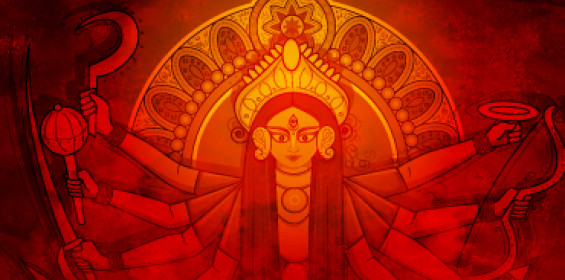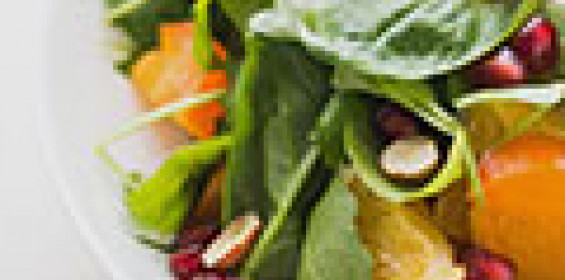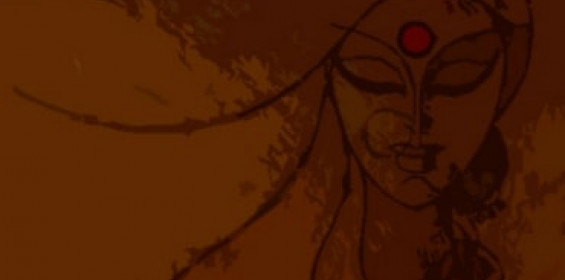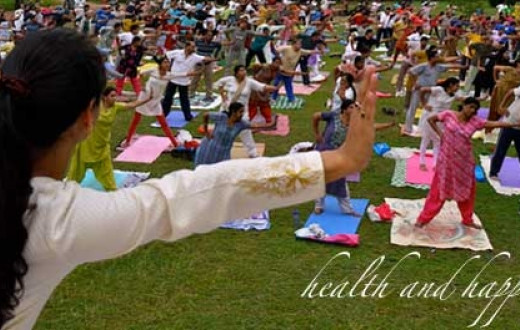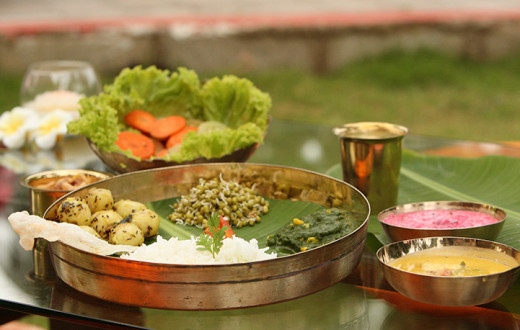“Just as Nature is new every moment, you become new by letting go of the past. One who rejoices in one's nature can rejoice with all of Nature.
- Gurudev Sri Sri Ravi Shankar
Gudi Padwa or Ugadi is a festival that marks the beginning of spring. Gudi Padwa is a Sanskrit word, Gudi refers to a flag and Padwa refers to the first day of the lunar fortnight.
This year, Gudi Padwa falls on April 13th . As India, and the world observes a lockdown and social isolation in the fight against COVID-19, this is what you can do:
- Avoid participating in any street processions.
- Observe the festival with family at home, avoid calling neighbors.
- Make the traditional sweet in small quantities and if possible, send them to the doctors / police personnel / laborers near the community.
- If that’s not possible, keep aside a small amount for donation and contribute to a fund that supports supplies for daily workers.
- Observe your puja and rituals with whatever is available at home. Don’t fret the absence of any puja material.
- Believe in the power of prayer. Pray for the world, for affected and at risk persons and those working towards saving others.
- Keep up a positive and optimistic attitude.
- Spend time in reflection and silence.
- Resolve to continue observing the best health practices to maintain immunity. That’s the strongest defence.
And continue rejoicing and celebrating the spirit of the new year!
“This New Year, make a resolution to forgive all those you are/were upset with or angry at in the past year, and start a new chapter with enthusiasm and naturalness. Resolve to do something excellent and to be of use to others. Be happy and spread happiness.”
- Gurudev Sri Sri Ravi Shankar
Significance of Gudi Padwa
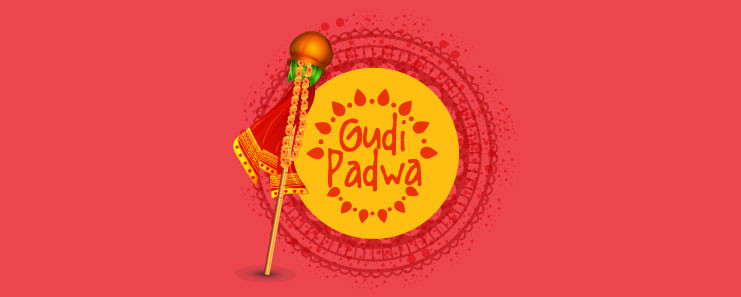
This festival is celebrated in different parts of India with various names such as Ugadi, Cheti Chand, Navreh and Sajibu Cheiraoba. It signifies a sense of newness.
Beginning of the new year: According to the Hindu calendar, Gudi Padwa is the first day of the Chaitra month that marks the beginning of the new year. During this time, the sun is in the first zodiac sign - Aries.
Agricultural importance: For a country where agriculture contributes to 14-17 percent of its GDP, the time of Gudi Padwa is considered very important for harvesting.
Isn’t our cultural heritage fascinating? Equally intriguing is our tradition of healing and health. Thousands of years ago, our ancient sages unlocked techniques and wisdom to maintain holistic health. Know more about these secrets at The Art of Living Meditation and Breath Program.
Discover India's spiritual heritage and learn about the mind & breath. I'd like to know more>>
The return of Lord Rama: The festival also symbolizes the victory of good over evil. It is believed to be the day when Lord Rama returned to Ayodhya after 14 years of exile.
Creation of the world: It is also said that Lord Brahma created the world on this day, marking the beginning of Satyuga.
How to celebrate Gudi Padwa?
Maharashtrians celebrate this festival by making handmade dolls and decorating them. Street processions are usually carried. People meet and greet each other by distributing sweets such as shrikhand, puran poli, sakhar bhat.
Rituals and its significance: 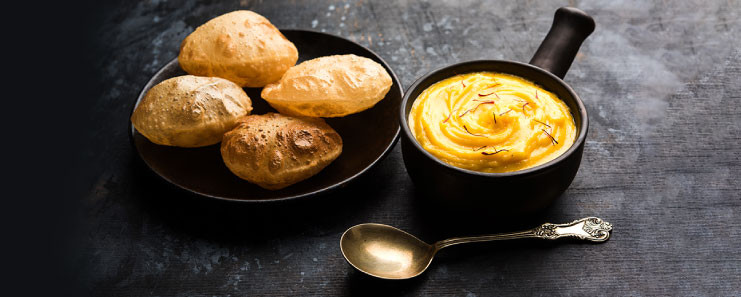
Why are handmade dolls worshipped on the day of Gudi Padwa?
Gudi is a stick decorated with red and yellow-colored cloth and various garlands made of neem and mango leaves, marigold flowers with a copper vessel on the top.
Copper vessel: A copper vessel is placed upside down on the stick, representing the human mind, signifying that we must start the new year on a fresh note. The upside-down direction of the copper vessel tells us to empty our minds of all that happened in the past and start a new year with new life. We pray that the ghada (mind) is always filled with knowledge and love.
Neem and mango leaf garland: The stick is decorated with neem and mango leaves which represents the bitter and sweet flavors of our life. Sometimes we encounter many challenging situations and roadblocks and at other times, we get through with flying colors. Neem represents self-confidence while the mango represents the sweetness of the heart.
Doll: Gudi gives us a message to see life from a bigger context. To maintain faith and enthusiasm despite hurdles in life. To honor the doll is to honor life. The doll represents the mystery of life.
Usually, people offer prayers to Lord Brahma, and then hoist the doll to invoke Lord Vishnu and seek his blessings too.
Rangoli: Rangoli is a form of art which is considered very auspicious. It not only enhances the creativity of people but is said to bring good luck, prosperity, and happiness.
It is believed that Gudi Padwa celebrations began in the times of Chhatrapati Shivaji, the pomp and gaiety united kith and kin. Through all those years, Gudi Padwa has grown stronger in celebrating nature’s bounty and the human spirit. This year, too, Gudi Padwa will unite people in harmony, love, and faith.
Start the new year with Gurudev. Clear the mind and strengthen the resolve to fight obstacles. Join the series of live meditations with Gurudev on srisri.org/live/
We’d love to hear from you.
Write to us @artofliving

